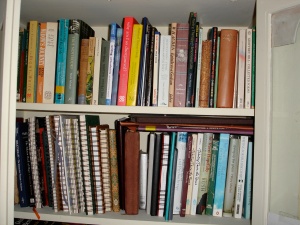
My father would have been 88 this week except he died 27 years ago. He’s been dead for more of my lifetime than he was alive. I still write about him.
There are many published memoirs about the death and life of a parent but Blake Morrison’s 1993 book And when did you last see your father? was one of the first. It alternates chapters about his father in life and chapters about his decline and death from cancer. All written in the present tense. On BBC Radio 4’s Bookclub recently Morrison was asked who his imagined reader was when he was writing it. “Myself”, he said, and added that writing the book was a kind of therapy, that what he was unable to speak about, he was able to write about. Some people can write about things before they can speak about them, especially traumatic or complex things. Another guest on the programme said, “Reading it was great therapy”.
In Moments of Being, Virginia Woolf writes that her mother, who died when she was 13, obsessed her until she was 44:
“Then one day walking round Tavistock Square I made up, as I sometimes make up my books, To the Lighthouse; in a great, apparently involuntary rush……….I wrote the book very quickly; and when it was written, I ceased to be obsessed by my mother. I no longer hear her voice; I do not see her.
…”I expressed some very long felt and deeply felt emotion. And in expressing it I explained it and then laid it to rest.” p81.
Both Woolf and Morrison understand how writing can be powerfully therapeutic, a way of transforming difficult, painful and inexplicable feelings and experiences into part of the coherent narrative of a life.
One of the challenges of writing about a deceased parent is, as Morrison puts it, how you ‘lift the lid’, how you portray with honesty and with love the complexity of the person and your relationship, how not to ‘beatify the dead’. How do you give yourself permission to show ambivalence and know that it’s ok to show ambivalence? How do you show the mutual frustrations that are present at times in any relationship, especially when there is no longer hope of resolution or understanding?

Journal Prompt: And when did you last see your father? opens with a vivid childhood memory of going on a family holiday, written in the present tense. We sense that this is a typical view of his father. What typical childhood memories do you have? Write about one in the present tense, situate your parent in context.
Sometimes, as in actor Alan Cumming’s memoir, Not my father’s son, about his violent father, there is no ambivalence but it can be just as difficult to find the words.
What are your favourite memoirs about parents? Please share them in a comment.
What is your experience of writing about your parents? Have you found it therapeutic?
.

